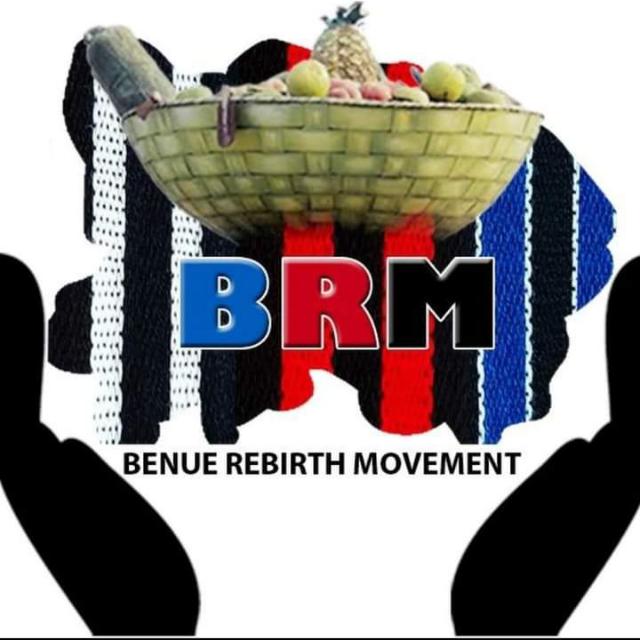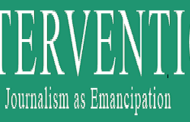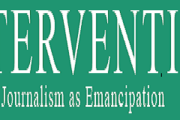Idomaland is still in the news as the Benue Rebirth Movement (BRM), the most active platform speaking for the Idoma ethnic group, has formally written to President Bola Tinubu, full of appreciation for the president’s action in confirming two Permanent Secretaries from the stock. It is a letter of appreciation that will interest students of power on grounds of the content and in terms of what the move points to on the part of the Idoma, President Tinubu’s power style and what these all may suggest in Nigerian politics.
It is a letter overflowing with what is clearly a genuine appreciation for the president’s gesture, beginning with “We, the members of Benue Rebirth Movement, would like to express our utmost gratitude and appreciation for your recent appointment of two permanent secretaries of Idoma extraction from Benue state. This decision brings us great joy and relief, as it represents a recognition of our people’s contributions and alleviates sentiments of marginalization both at the state and federal levels”.
BRM went further to say “We cannot understate the significance of this appointment as it serves as a testament to your magnanimity and commitment to fostering inclusivity in our political landscape. By appointing individuals from our community, you have demonstrated your willingness to acknowledge and address the concerns raised by Benue Rebirth Movement. This act of according representation to the Idoma people signifies your dedication to ensuring all voices are heard and valued” It is a short letter although these are just the first two paragraphs in BRM’s own words.
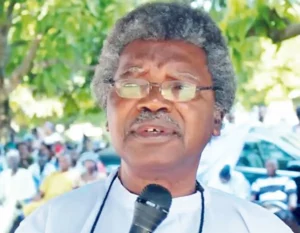
The late Dr Paul Unongo who said he planned one term in office and then shift power to his Idoma deputy – Dr Edwin Ogbu but Unongo never became governor of Benue State

No harm in speculating what would have happened to ethnic balancing act if Chief J. S Tarka were still alive?
The first point about the letter, according to Intervention‘s sources, is that it completes communal appreciation of the confirmation of the two Permanent Secretaries in question, given that the Och’Idoma has already applauded it. That is to say that the traditional and modern elite are together in appreciation of the president. Since truth is what is unsaid, the totality of the appreciation could imply President Tinubu’s capture of Idomaland. The Idoma may be a minority but one vote can mean so much to a politician.
Equally crucial is whether President Tinubu’s response to the Idoma grumbling against the non-appointment of an Idoma son as a minister marks a shift in presidential approach to power. Observers note that the president’s approach to power has been rather stone faced, humourless and less bothered with calming and other tactics of hegemony. What has been more associated with him is removal of one subsidy or the other, taxes, what someone has called VIO, FRSC and sundry gangsterism on the highway in pursuit of revenue rather than traffic management, all right there before the president’s eyes in Abuja at a time of grave material stress. However, in the face of BRM criticism of exclusion, there was no firework from the rather reactive presidential media machine. When the president eventually responded, it came in the form of what everyone is now calling a gesture. Is it possible that someone have whispered to the president that, in the age of informationalised capitalism, it is too risky not to rely on hegemony, (creating reality by making everyone accept that a particular idea or practice is the most appropriate)? Or is the Idoma case too singular to prove a thesis of change of style? And should Nigerians therefore wait for more examples before concluding?
There are those who will find the whole drama sociologically interesting, going ahead to interpret it as a struggle against the social Darwinism to which Nigerian politics has, in their view, degenerated. Otherwise, minorities are usually shielded against majoritarianism in most modern polities. In principle, they are so protected in the Nigerian Constitution by such practices as the Federal Character, Quota and Rotation of Power. In practice, these principles are observed more in breach than otherwise.
So, the Nigerian situation contrasts with the situation in quite a number of other cases where minorities do not have to feel vulnerable on account of their demographic profile, Intervention was told. Those who hold this view are referring to the situation in certain polities where minorities are, for example, the stock from which presidents and prime ministers are recruited. The assumption for that is the difficulty of a minority element to yield to the temptation of dictatorship, partly because s/he cannot find the personnel from his or her minority ethnic group to fill the headship of the regular and secret police, military commanders and national security chief upon whom dictatorship is erected.
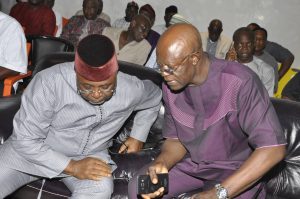
Chief Steven Lawani (L) and Engineer Benson Abounu (R), former deputy-governors of Benue State, all of Idoma nationality
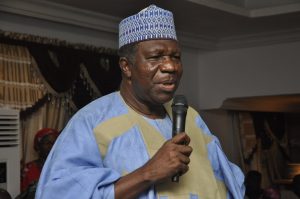
Senator Ameh Ebute, a former Senate president, an Idoma man
This was the key reason given by the core of northern intellectuals who went to pile pressure on the late Mallam Adamu Ciroma to contest the presidency in 1978. Apart from the fact that Adamu Ciroma read like a student, was very disciplined and independent minded, he is of the Bolewa ethnic minority group who it was assumed could never become a dictator. And the core in question told him so. But Ciroma never won the nomination to become the presidential candidate of the now defunct National Party of Nigeria (NPN). The ‘northern oligarchy’ proved too smart for the ‘Kaduna Mafia’ in that contest and Ciroma lost to Alhaji Shehu Shagari who got the job. Although the mafia reclaimed power through the 1983 coup, it was not a Ciroma that came to power.
In the absence of a minority protecting elite, the Idoma, the Ishan in Edo and not a few others have to carry their can. A friend of Intervention from Bauchi argues that the even Idoma have an advantage: they have many sons and daughters who have made national name. That is absolutely true at the factual level. Chief Audu Ogbeh would be one of them. A product of King’s College, Lagos, a former academic who speaks French, a friend of Wole Soyinka, a kingpin of the Arewa Consultative Forum (ACF) and a former National Chairman of the then ruling party. This is no joke. Senator Ameh Ebute is another big name from being a former Senate President and a leading June 12 activist. There is Prof Isawa Elaigwu, an independent minded product of Standford University and a member of the core of intellectuals around the Babangida power project. There is no way his ethnic group would not have a veritable resource person in him, given the number of people he can reach. There is Chief Steven Lawani, quiet but highly networked and therefore capacity loaded. Senator David Mark is an obvious name on such a list that will stretch to many retired military officers with fantastic training and exposure. This is not to talk of younger elements setting brilliant records in business, military, governance, civil society and what have you. The mystery is how a man with so many grown up children could still be vulnerable to the Tiger’s attack.
One answer is that it all has to do with lack of a communal tasking strategy. There is more of expectation that an Idoma office occupant should know what the community needs rather than specific community tasks to those with capacity to accomplish certain specific tasks for the community.
Without a proper listing and sense of tasking, goes the argument, the question of who is who in the negotiation with their Tiv counterpart over the governorship tussle, for example, does not appear to some critics to have taken into consideration the seriousness of the task of reassuring the Tiv that power shift does not means a threat to her own interests.
This notion of the need for Idomaland to look inward especially in terms of the grand strategy echoes elsewhere again. For instance, former president Muhammadu Buhari located a specialised university in Idomaland. Some internal critics are wondering if the Idoma have a blueprint for taking advantage of a federal institution beyond the typical Nigerian community approach of insisting on filling the position of the Vice-Chancellor and other principal officers. The argument is that Idoma does not know how to instrumentalise the university if it has no higher expectations than this from the federal medical university it is hosting.
Lastly, also unclear is Idoma sense of power resources beyond money and political office. Some observers are pointing out, for instance, if the BRM has a sense of visibility and voice in its struggle for ascendancy.
The long and short of this letter to the president from the BRM is that it is doing something which is of interest to many centers of power and of intellectual reflection in the age of social movement politics when working class singularity has been questioned. No serious students of political sociology would be uninterested in BRM’s moves, the strength and weaknesses of all such moves and where they could lead to. To that extent, BRM has nothing to apologise about although it should watch its tactics since identity is a very fluid thing. Fluidity of identity means that it should not overplay the Idoma-ness of the struggle. It is not struggle for Idoma as such but for ethnic balance and participation in a state with few dominant ethno-cultural groups in the current configuration of Nigeria more or less as ethnic rather than civic federalism.
Most important is what BRM might learn from the entire saga. In social movement politics which is the terrain it is operating in, what it is dealing with is antagonism, (the other of the self) not a contradiction (as Marxists understand it) and it should mind the difference between the two. In other words, this is not a war against an enemy bit a struggle for expansion of the democratic space. The contingency of ethnicity could mean the Tiv becoming defenders of Idoma interests tomorrow and vice-versa. The struggle is therefore about negotiation rather than a campaign.
Of course, there is the variable that analysts of the saga are not losing sight of. It is the plausible Senator George Akume factor. Coming from Benue State himself, the chief scribe to the administration might have been hardest hit by the BRM outing and might have played a role in actualising the two Permanent Secretaries gesture. This does not deny President Tinubu the credit for the sensitivity since it is the norm for all credits (and liabilities) to go to the head of a government. The point, however, is what Akume’s role in this particular process signals in the ethnic negotiation of power back in Benue State.

